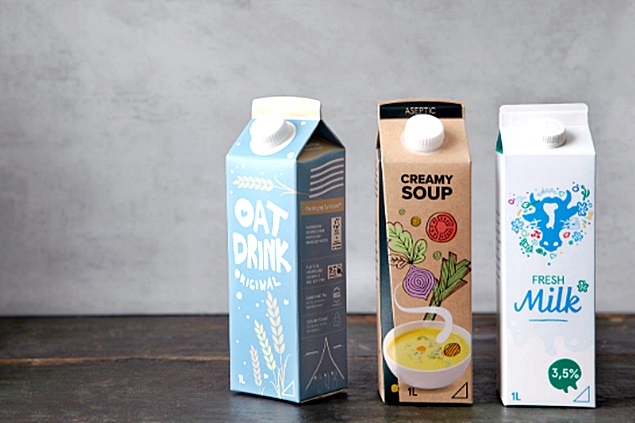1476

The negotiators at the UN climate change talks should focus on reducing plastic consumption. Beverage cartons are a way to do this, says Thomas Körmendi, Elopak's manager, as quoted by European Supermarket Magazine.
A Criticized Report
So far, most of us are well aware of how harmful plastic waste is for the planet. We've given up straws, started carrying our groceries in tote bags, and rolled our eyes at bananas sweating in their plastic bags.
Hence, the progress made by the UN climate negotiators in Paris last month is welcome news, with a mandatory agreement to end plastic pollution by 2040 expected to be reached next year. However, there is still work to be done.
In 2022, 175 countries agreed to address plastic production, design, and disposal to put an end to plastic pollution. Unfortunately, since then, the UN Environment Programme (UNEP) has adopted a more conservative approach to get rid of the plastic scourge.
The program's recent report, "Turning the Tap: How the world can stop pollution and create a circular economy," has been criticized by the advocacy group Plastic Free Future for not being ambitious enough and supporting a strategy largely based on the chemical recycling of plastic, which itself emits large amounts of toxic pollution and hazardous waste.
Considering that globally, less than 9% of plastic materials currently reach recycling facilities, organizations including Greenpeace are calling on UNEP to focus more on limiting and gradually reducing plastic production, rather than attempting to recycle their way out of the problem.
The Plastic Enigma
The scale of the plastic problem is alarming. At the current rate, plastic waste will triple by 2060, with less than a fifth likely to be recycled. Microplastics can now be found everywhere on Earth: from the depths of oceans to the pristine peaks of glaciers, even in human breast milk.
Furthermore, plastic emissions are estimated to account for 19% of the global greenhouse gas volume that would be allowable in a 1.5°C global warming scenario.
Given the obvious need to drastically reduce plastic production, it's disappointing that the UNEP report overlooks a transformative solution that can significantly reduce the amount of plastic used for packaging a wide range of foods and beverages.
This solution is already employed by thousands of companies worldwide and has been on the market for over 100 years. That solution is carton packaging.
A Sustainable Alternative
Cartons already offer a natural and sustainable alternative to plastic bottles, with a wide range of applications in the food and beverage sector, as well as household products like soaps and detergents.
Aside from being recyclable, cartons are largely made from paperboard, which can be sourced from sustainably managed renewable forests, and they are lighter and easier to transport than reusable bottles.
Most importantly, life cycle analysis (LCA) studies have shown that cartons have a much lower carbon footprint than both plastic and even glass bottles. This includes independent research from the University of Southampton in 2020, which found that for fruit juices, cartons have the lowest environmental impact among all evaluated packaging options.
Despite these attributes, UNEP's "system change" approach doesn't include specific provisions for cartons, despite the fact that 17% of plastic waste could be eliminated by more sustainable alternatives like paper.
I would argue this is likely a conservative estimate, given that humans use over a million plastic bottles per minute, and UNEP overlooks a readily available solution to reducing the total volume of plastic used in packaging.
A Naturally Regenerative Option
A holistic view of the life cycle of different packaging types clearly shows that carton packaging is a low-carbon and naturally regenerative alternative to plastic bottles for many products.
It's true that cartons currently contain a very small amount of plastic in the form of screw caps and a thin barrier to protect the product inside. However, this is a marginal amount compared to the mountains of plastic currently circulating in the packaging industry.
Given UNEP's relatively short timeframe for eradicating plastic waste, the world desperately needs available solutions to reduce the amount of plastic entering our economy.
Replacing plastic bottles with beverage cartons for liquid food, drinks, and household goods would bring significant and immediate reductions in plastic use and greenhouse gas emissions, as well as contribute to promoting and supporting the circular economy.
Companies are already very aware of the sustainability benefits of cartons compared to plastic bottles. At Elopak, the company I am CEO of, we receive numerous requests from juice, milk, and other beverage producers to repackage their products from PET and HDPE plastic bottles into our sustainably sourced cartons. In recent years, we've even expanded into the non-food sector, producing a line of refill packs for established brands of hand soap and laundry detergent.
A world where all milk, juice, dish soap, and laundry softeners can be packaged in regenerative, low-carbon cartons is not only preferable but fully achievable. The carton industry needs the support of organizations like UNEP to address this challenge and help drive a definitive packaging transformation.





